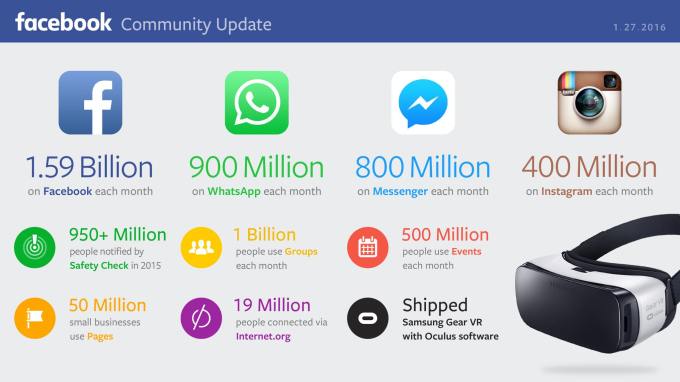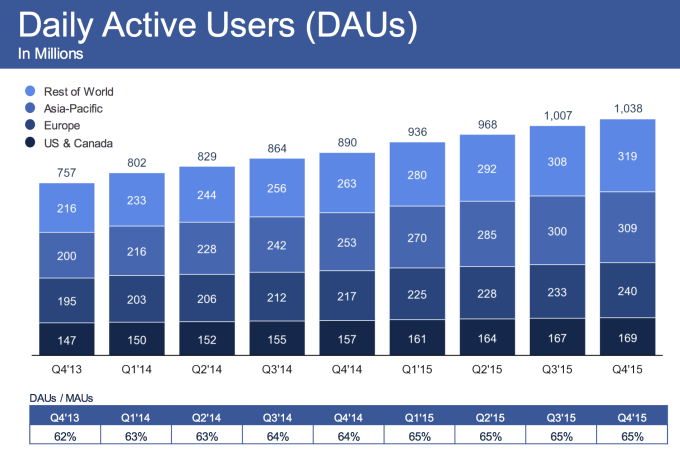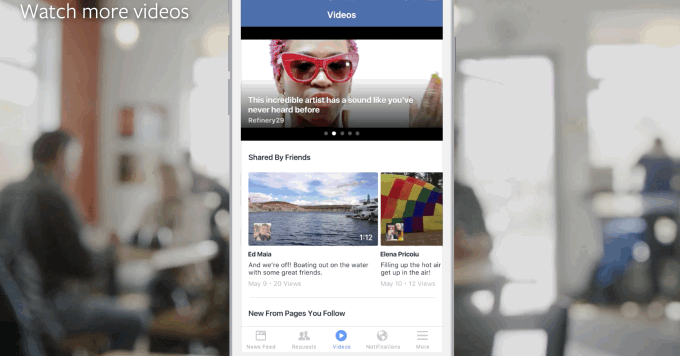Everything at Facebook seems to be growing, according to Mark Zuckerberg’s Q4 earnings call comments. Facebook now sees 100 million hours of daily video watch time.
There are 1 billion monthly users now users on Groups, up from 925 million at the close of Q3. 80 million people use Facebook’s stripped down app Facebook Lite for the developing world’s slow connections, up from 50 million at the end of Q3. 500 million users are on Events, up from 450 million in July, and they created 123 million events in 2015.
Facebook has 2.5 million advertisers and 50 million small businesses on Pages up from 45 million last quarter. Users are leaving billions of comments on these pages, which bodes well for Facebook’s plan to make Messenger the new way people communicate and complain to businesses.

Essentially, Facebook is eating the Internet.
It’s becoming a serious competitor to YouTube for video viewing, it’s building ways to attract users in the developing world, it’s giving every more ways to share than just the News Feed, it’s solidifying itself as the way to invite people to birthday parties and big ticketed events, and businesses are using it to host communication with customers.
Each of these comes with monetization opportunities. There’s lucrative video ads, low-bandwidth slideshow ads for slow connections, commerce ads targeted to people who use groups to buy and sell, Event ads for promoters trying to sell tickets, and ads that encourage users to reach out to businesses over Messenger.

More and more, it seems like Facebook’s ascent before the shift to mobile has enabled a unique opportunity to be much more than a social network. On phones, concise experiences like Snapchat and Instagram rule. But Facebook instituted itself when people were still open to single sites with lots of features. Groups, Events, Pages and more have blossomed over the last half decade into critical utilities when they might not have fit if Facebook had to start on mobile.
And while there are plenty of competitors vying for people’s time on mobile, they’re typically only nipping at Facebook’s ankles. With the failure of Google+, there is no other service poised to challenge Facebook as a core provider and platform for identity. With so many every day needs and outside apps dependent on Facebook, it doesn’t look like its growth will slow down any time soon.
